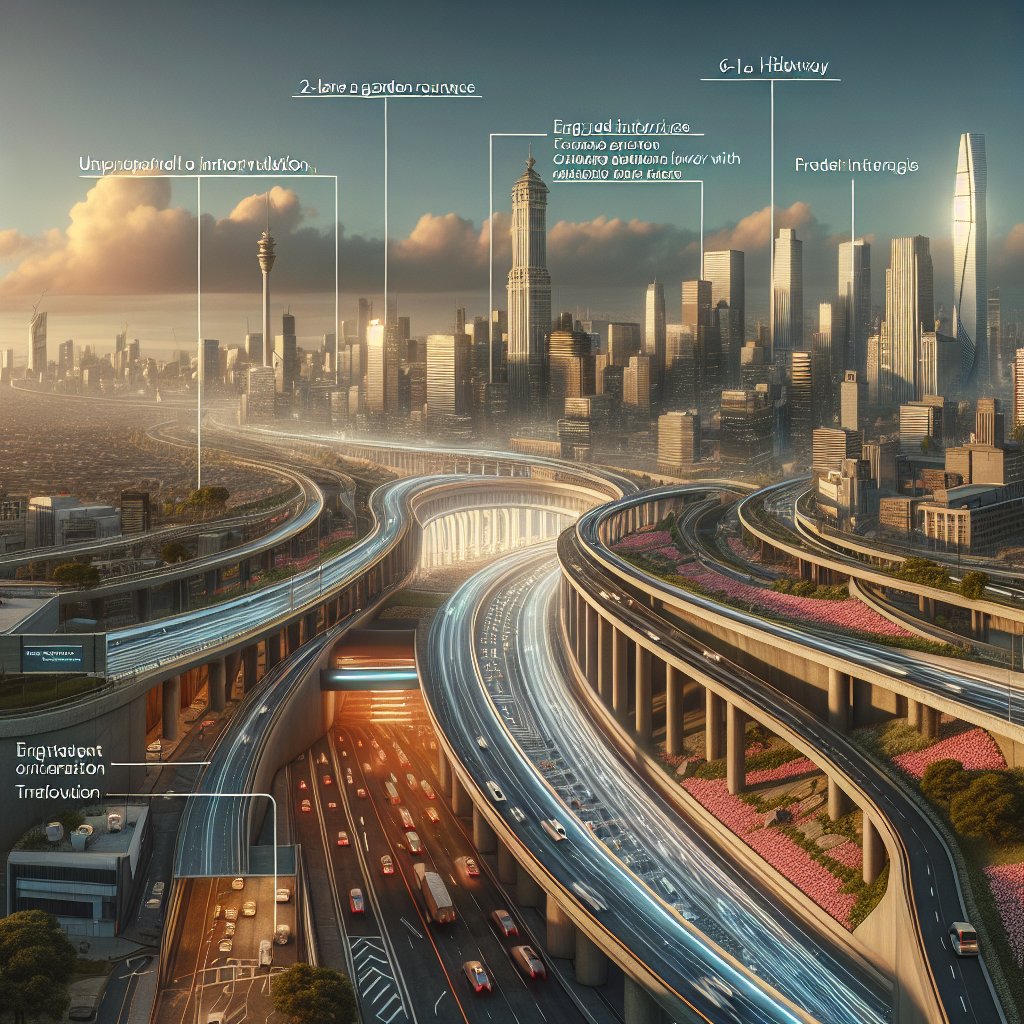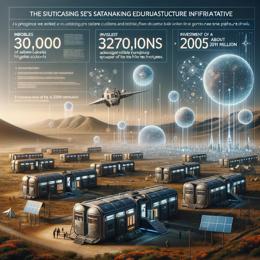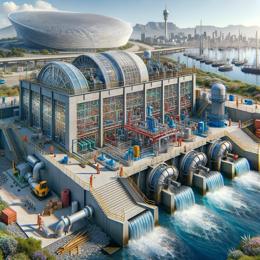Image created by AI
Multibillion-Rand Road Expansion Plans Set to Transform Western Cape Infrastructure
The South African National Roads Agency Limited (Sanral) has unveiled its ambitious blueprint for the transformation of key transportation arteries in the Western and Northern Cape, committing multibillion-rand investments into several major projects aimed at enhancing road infrastructure, alleviating congestion, and bolstering safety.
A considerable focus is being placed on the N2 highway in Cape Town, with a R2-billion scheme to extend a 12-kilometer stretch between the Swartklip and Baden Powell interchanges from a four-lane road to potentially an eight-lane freeway. The enhancements will include the upgrading of four key interchanges and a specific emphasis on the safety of pedestrians, reflective of Sanral's commitment to integrated road safety.
In response to environmental challenges, part of the N2 that extends 6 kilometers will also need elevation works due to rising water levels — a testament to infrastructural planning that considers the long-term impacts of climate change.
Moving away from the bustling city, the picturesque N2 Garden Route is experiencing a makeover of its own. The ongoing efforts from Kraaibosch to Touws River in Wilderness are the first steps in a two-phase project envisaging more than R1.5-billion in expenditures to better this scenic drive. Focused improvements in the second phase will extend from Touws River to Die Vleie, facilitating better traffic flow and enriching the tourist experience.
Sanral's strategic intentions are further realized with the over R3-billion upgrade planned for the N1 route, beginning from Cape Town’s Old Oak to the Koelenhof interchanges. As with the N2, the N1 will enliven from a four-lane freeway into six or eight lanes, while five interchanges will experience upliftment. A push towards enhancing pedestrian safety in these busy sections highlights the multifaceted approach of the upgrades.
One of the most notable components of the Western Cape's infrastructure overhaul is the revamp of the emblematic Huguenot Tunnel on the N1. After two years of improvements to the 36-year-old south bore tunnel, including new lighting, ventilation, and fire detection systems, attention now shifts to its counterpart — the north bore tunnel. Sanral has finalized the detailed design and is moving forward with a five-year construction contract that will approximate R4 billion. The tunnel, excavated concurrently with the south bore, is currently an auxiliary escape route but soon will be updated to match its counterpart's modern standard.
These infrastructural ventures represent an investment in the future of the region — not just as a matter of routine maintenance, but as a strategic enhancement of the Western Cape's capacity to accommodate growth and ensure safety. As Sanral prepares to open the tender processes, these planned upgrades signal a significant period of change for commuters, enterprises, and the tourism sector. The development trajectory envisaged by Sanral is poised to usher in a new era for road travel in the region.










